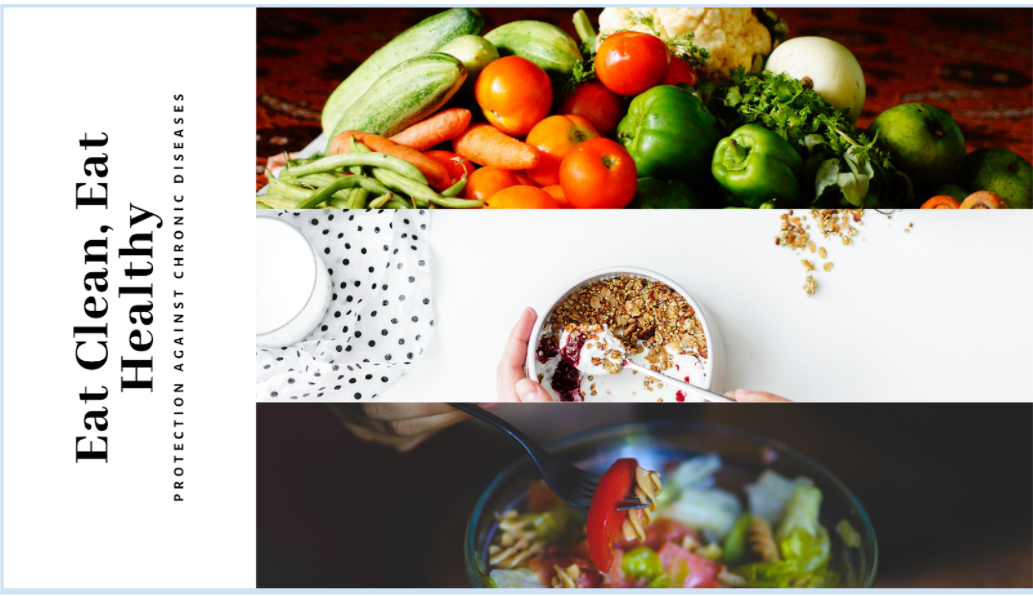
 |
Author: Tiera Smith |
|
Jan 1st, 2022 · 10 min |
As the winter season is amidst us, our exposure to daylight decreases. It can leave the most energized human feeling completely and totally drained while dealing with our copious amounts of responsibilities. This can affect our moods and health greatly. Understanding the changes in the seasons can affect our emotional state is crucial to understand how it can affect you and everyone around you too. Have you noticed you have been feeling more physically, emotionally, and mentally exhausted? Feeling “burnt out” is a sign you may not be caring for yourself enough. It may seem counterintuitive, but you cannot take care of everyone and everything if you do not take care of yourself first.
Physical signs and symptoms
• Tiredness; feeling drain
• Headaches and muscle pain
• Change in appetite
• Insomnia; restless sleep
• Lowered immunity
Emotional signs and symptoms
• Excessive stress
• Negative outlook
• Feeling helpless, trapped, and defeated
• Loss of motivation
• Decrease satisfaction
• Detachment
Behavioral signs and symptoms
• Self-isolation; disengagement
• Irritability
• Withdrawal from responsibilities
• Procrastination
• Using food, alcohol, or drugs to cope
Whether you have the warning signs of burnout or are there, making sure to take care of yourself should be one of your main priorities to avoid or get over feeling burnt out. Mindfulness care should be something practical and manageable for you.

By incorporating mindfulness and other healthy practices, it can help you overcome the seasonal blues or any time you feel down. Mindfulness practices play a huge part in your overall care of yourself, family, and work life. How can you help yourself to overcome burnout, feel healthy, and positive again?
Incorporating at least 30 minutes of exercise a day can change your mental and physical state. Children and youth should get at least 60 minutes per day of moderate to vigorous physical activity involving a variety of aerobic activities. According to the Canadian Physical Activity Guidelines (2018), adults including seniors should accumulate at least 150 minutes or 2.5 hours of moderate to vigorous physical activity per week.
Try different activities until you find the right one for your lifestyle and that you enjoy. Simple physical activities include going for a walk, aiming for 10000 steps, running, yoga, joining your local recreational center, biking, sport activities, or even home workouts (our favourite free app is FitOn).
If you are unsure where to start, consult with a health professional about the types and amounts of physical activity most appropriate for you.
A study from the British Journal of Occupational Therapy found that hobbies like knitting release the brain hormone, serotonin, which helps boost mood and sense of relaxation.
Our personal favourite is journalling from daily entries to visual journaling from sketching, drawing, to painting. Journaling can be an effective way to record events and process your thoughts and feelings.

Hobbies should be pleasurable without feeling pressure to accomplish something with it. There are no stressors to the hobby. Here are some no-pressure hobbies: • Meditation • Reading • Sewing, knitting, and/or crocheting • Drawing • Painting • Meditation • Reading • Sewing, knitting, and/or crocheting • Hiking. Our go-to site for best hikes around BC is www.alltrails.com • Gardening, indoors or outdoors • Singing • Dancing • Writing • Journaling • Crafting/scrapbooking No matter the hobby, as long as it is something you do to have fun and not be pressured to achieve anything can affect your mental health state significantly.
Get out of the house and have some sunlight to beat those blues. Being stuck in the house for winter may not be pleasurable due to colder weather however, not going outside for fresh air and what little sunlight we get can affect you greatly. Ritual walks are a form of meditation. Along with hiking, visiting the park, and doing light runs in the neighborhood, are all great for ‘resetting’ yourself. If you need extra motivation try inviting a friend to go out with you.

Dr.Huynh enjoying beautiful B.C.,📍Bowen Lookout on Cypress Mountain, Vancouver B.C.
A 2010 Japanese study published in Environmental Health and Preventative Medicine, found that going outside and getting some sun can increase your serotonin levels, lower stress hormone cortisol, lower pulse rates, and lower blood pressure. This in turn decreases the effects of seasonal affective depression as well as helps people who deal with anxiety and depression year-round, especially in combination with other treatments. Even with the consistent cloud coverage we get here in B.C., always make sure to go out and get a little bit of that vitamin D from the rays that do get through the clouds.

What we put into our minds is important but so too is what we put into our bodies.
A healthy diet is essential for good health and nutrition. It protects you against many chronic diseases such as heart disease, diabetes, and cancer. Eating a variety of foods and consuming less salt, sugars, and saturated and industrially produced trans-fats, are essential for a healthy diet, as recommended by the World Health Organization. Making sure to eat the right amount of vegetables, meats, dairy products, and whole grains can greatly increase our mental health and care.
Our favourite swaps for healthier eating includes:
• Protein-rich snacks instead of sugary snacks
• Overnight oats for Drive-thru breakfasts
• Lentils and quinoa over white rice
• Swapping sugar with pure maple syrup or honey
• Herbal tea instead of coffee

We know that the world pretty much revolves around electronic usage. How would we even get these blogs to you without them? But knowing when to put them down is essential to your mental health. Research from Vienna Psychological Group has shown that for many people, fear of being disconnected from their cell phone can feel just as real as a substance addiction; the feeling of withdrawal when the phone is not available or compulsive or repetitive need to check it. Being on social media constantly can affect your mental health and care of your physical health. A lot of people automatically compare themselves to people they see online or around them. “Be aware of what you’re allowing to influence your general perception of yourself, your life, and of life itself. Being mindful of what we ingest through media, people and conversations is a responsibility we must take because they all have the power to influence our energy and how we feel.” says Joshua Dorfman, (a meditation teacher and metaphysical healer in Mount Shasta, California). Limiting our electronic usage to interact with others instead of scrolling through social media can really help us lead a more meaningful life. It can change a person’s overall emotional regulation.
Having a healthy sleep routine can help not just your mental health but also your entire body. Many doctors have specified that consistent sleep hygiene is necessary for your everyday, fast-paced life.
Ensure your sleep schedule is consistent and regular. Making sure to keep up a consistent basis for sleep is important for your mental health. Have you ever noticed that when you have “the worst sleep” you also feel the worst? Adults need 7-8 hours of sleep, while children need 10 hours.
In order to ensure you get the best sleep possible, make sure your room is quiet, dark, relaxing, and at a comfortable cool temperature. Remember to remove electronic devices from your room (TV, computers, and smartphones).
Many habits can be healthy, but there are habits that doctors agree to be bad for your health. Some of these unhealthy habits include constant negative self-talk, overworking, excessive social media usage, smoking, drinking, to eating high sugar or high-fat content foods.
“Mindfulness is so effective because it empowers you,” Tiffany Cruikshank, (LAc, MOAM, a Seattle mindfulness expert, founder of Yoga Medicine and author of Meditate Your Weight) “Rather than blame yourself, it allows you to really suspend all judgment and focus on how you feel at a given moment. It allows you to see breaking a habit as a form of nurturing, rather than deprivation. As a result, you may feel more empowered, and are thus more likely to succeed.”
If you have trouble eliminating your unhealthy habits, set the bar low and reward yourself as much as you need to when achieving your goals. Of course, this isn’t always easy when you are stressed or upset. Be easy on yourself but firm. Remind yourself that these things are something that causes serotonin in the brain, (the happy hormone) but that they’re not the best for you.
For instance, if unhealthy snacking is something you want to improve on, try to trade the cravings for something healthy and similar to what you’re craving. Having healthy snacks can really help these cravings. Sugary foods? Find a sweet fruit like an apple or cantaloupe. Like eating your favorite salty chips? Swap with some healthy trail mix, it will help with satiety and energy.
Stressed at work? Bringing work at home? Delegate some tasks to your coworkers. Set a hard limit on your boundaries. And if possible, find gratitude.
Constantly talking yourself down? The loudest noises often come from our inner critic. In 2005, the National Science Foundation published an article summarizing research on human thoughts per day. It was found that the average person has about 12,000 to 60,000 thoughts per day. Of those thousands of thoughts, 80% were negative. Try surrounding yourself with your loved ones, listening to uplifting and empowering podcasts, or even treating yourself to a makeover.
Making sure to take care of yourself should always be something you strive for even if it’s 10, 20, or 30 minutes a day. Burnout doesn’t have to take over your life. Remember, you don’t need to go all out, just make sure you take care of yourself in a way that makes you feel good, happier, and healthier. Remind yourself that you are doing the best you can under incredible circumstances.
Park, B. J., Shin, C. S., Shin, W. S., Chung, C. Y., Lee, S. H., Kim, D. J., Kim, Y. H., & Park, C. E. (2020). Effects of Forest Therapy on Health Promotion among Middle-Aged Women: FocusingPsychological,on Physiological Indicators. International journal of environmental research and public health, 17(12), 4348. https://doi.org/10.3390/ijerph17124348
Public Health Agency of Government of Canada. (2018, October 1). Physical Activity Tips for Adults (18-64 years). Retrieved December 17, 2021, from https://www.canada.ca/en/public-health/services/publications/healthy-living/physical-activity-tips-adults-18-64-years.html
Smith, M., Segal, J., & Robinson, L. (2021, December 8). Burnout Prevention and Treatment. HelpGuide.org. Retrieved December 17, 2021, from https://www.helpguide.org/articles/stress/burnout-prevention-and-recovery.htm
Take a mindfulness break from Your Electronics: Vienna Psychological Group. Vienna Psychological Group |. (2021, February 5). Retrieved December 17, 2021, from https://www.viennapsychologicalgroup.com/take-a-mindfulness-break-from-your-electronics/
World Health Organization. (n.d.). Healthy diet. World Health Organization. Retrieved December 17, 2021, from https://www.who.int/initiatives/behealthy/healthy-diet